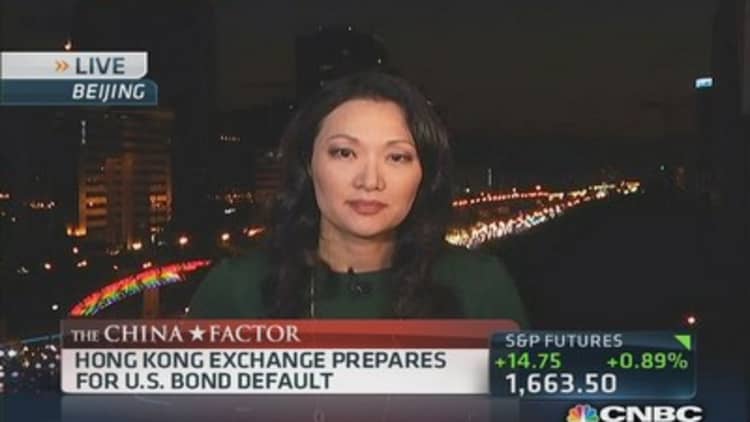China launched a currency swap deal with the euro zone on Thursday, in the country's latest push to transform the yuan into a major world currency.
The foreign exchange (FX) swap—an agreement to exchange one currency for another at a set rate at a certain time in the future—will have a maximum size of 350 billion yuan ($57.2 billion) and 45 billion euros ($60.9 billion) and will be valid for three years.
"From the perspective of the euro system, the swap arrangement is intended to serve as a backstop liquidity facility and to reassure euro area banks of the continuous provision of Chinese yuan," said the European Central Bank in a news release.
Benefits of FX swap agreements include improving liquidity for currencies outside the domestic market, helping ensure the stability of financial markets. Plus, there has been a strong growth in China-European trade and investment flows, with Europe as a whole accounting for 14 percent of China trade last year.
The euro zone deal is the latest in a series of currency swaps China has signed this year and last. Recent major pacts include one struck with the U.K. in June, with a maximum value of 200 billion yuan.
(CNBC explains: China-U.S. Currency Situation)

Kit Juckes, head of currency strategy at Societe Generale, said the newest deal was indicative of the yuan's increasing reputation as a currency for global trade and settlement.
"It's a significant sign that the renminbi (yuan) is becoming more important, moving towards more credibility. Its significance has been bolstered from its recognition of its international use. We will see more of this," Juckes told CNBC.
The People's Bank of China's efforts to internationalize the yuan appear to be working. Last month, the Chinese yuan was ranked one of the world's top ten most frequently traded currencies for the first time ever, in a Bank of International Settlements survey. The currency ranked ninth in the top-10 list, eight places higher than when the survey was last conducted three years ago.
(Read more: )
With many swap lines now established between China and other central banks in Asia and Europe, speculation will grow of upcoming links with the Americas, according to Ju Wang, senior FX strategist at HSBC.
"At present, the People's Bank of China only has an FX swap line with Brazil. … As the renminbi becomes more international in nature, the FX swap lines between the People's Bank of China and other central banks will become increasingly common," he said in a research note.
But despite its globalization efforts, the People's Bank of China has continued to closely control the yuan's exchange rate, allowing it to rise or fall no more than 1 percent from an official midpoint it sets each morning.
(CNBC explains: China's Currency Peg)
Wang said the timing of the European Central Bank's deal just ahead of a key Chinese policy meeting could prove significant in terms of currency control liberalization.
"Importantly, this announcement comes ahead of China's Third Plenary Session in November, when other FX reforms could surface," he said.
—By CNBC's Katy Barnato

